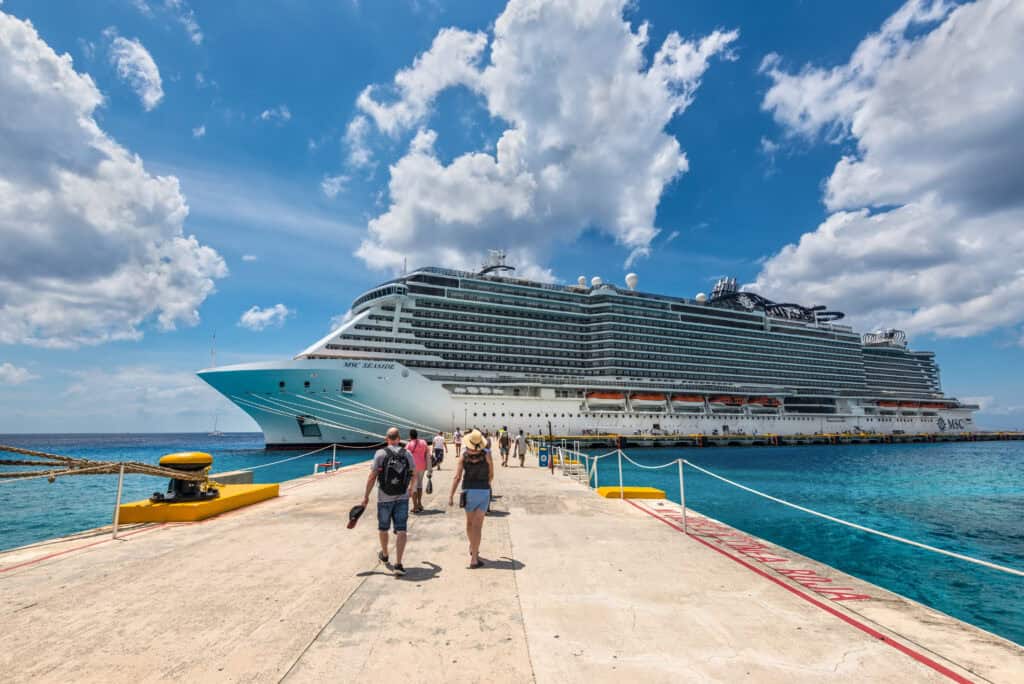We may earn money or products from the companies mentioned in this post. This means if you click on the link and purchase the item, I will receive a small commission at no extra cost to you ... you're just helping re-supply our family's travel fund.

Imagine selling your home to retire aboard a floating paradise, with endless ocean views and gourmet dining every night. Thousands of retirees are doing just that, but they’re shocked when their “affordable” cruise retirement swells to double the price. What cruise brochures don’t show is how fast hidden costs add up, and just how unexpected these financial traps can be. Here are 9 unexpected costs in cruise ship retirement living.
Mandatory Daily Gratuities And Service Charges

Cruise lines advertise rock-bottom prices, but they automatically charge $18 per person daily for standard rooms and $20.50 for suites, whether the service deserves it or not. For a couple in a suite, that’s $41 every day, or $14,965 a year, vanishing in fees never shown in advertisements. You can’t opt out and most first-time cruise retirees never see these charges coming, making it a permanent tax on your dream retirement.
Premium Internet And Wi-Fi Connectivity

Want to video chat family or check bank accounts online? Wi-Fi packages range from $15 to $35 per device daily. That’s $5,475 to $12,775 a year just to stay connected. Premium plans exceed $40 per day, yet ship internet crawls slower than dial-up. That heartwarming video call with family becomes a frustratingly expensive luxury you’ll think twice about every time you connect.
Alcoholic Beverage And Drink Packages

Picture watching the sunset with a cocktail, but also imagine paying $36,500 a year for that privilege. Unlimited beverage packages cost $79 to $100 daily per person, or $28,835 to $36,500 a year. Even basic sodas and specialty coffees add to the bill; only tap water and basic coffee are truly free. What looks like a small indulgence quickly rivals your cabin cost and hits unsuspecting retirees hard.
Medical Evacuation And Emergency Transport

Now comes the genuine budget breaker. Medical emergencies at sea mean evacuations that range from $15,000 to over $200,000, involving helicopters, aircraft, and medical teams. Medicare and most U.S. health plans won’t pay these costs in international waters. A heart attack 500 miles offshore could erase your savings fast, leaving your family scrambling to wire emergency cash.
Comprehensive International Health Insurance

Because standard coverage doesn’t work outside U.S. waters, you’ll need travel insurance. These policies cost anywhere from $150 to over $500 monthly, with premiums rising for older retirees or those with pre-existing conditions. Spending $1,800 to $6,000 annually may seem outlandish, but most retirees never realize they need this protection until onboard and seeing the risk firsthand.
Laundry Services And Garment Care

Here’s a cost hidden in the fine print. Most ships have no self-service laundry; you’ll pay $3.50 to $7 per item just to wash and press clothes, with dresses and suits costing more. Even rare self-serve machines charge $2 to $4 per wash and dry. Over a year, laundry for a couple exceeds $3,000 to $5,000—a surprise expense few cruise retirees see coming until their first dirty laundry day.
Port Fees, Taxes, And Government Charges

Think you’ve calculated the real cost? Add another 10% to 50% for fees the cruise line forgets to mention. Port charges and taxes add 10% to 20% on top, but rare or protected destinations can cost up to 40% or 50% more. Caribbean cruises run $100 to $200 per person in mandatory fees per week, while Alaska can be even pricier due to passenger taxes—costs few retirees expect.
Prescription Medication Access And Refills

This isn’t just a money problem, it’s a health risk. Ship pharmacies stock very few medications, and charge two or three times retail prices. Retirees face a choice: try transporting months of medication, risking customs trouble, arrange unreliable port deliveries, or pay ship prices for prescriptions. Running out of critical medication days from land quickly turns a budget worry into a medical emergency.
Legal Residency, Tax Compliance, And Banking Fees

Living at sea creates a complex paperwork nightmare. You need legal addresses, file taxes across multiple places, and manage international banking without reliable internet. Hiring maritime attorneys and tax experts, paying foreign transaction fees, and managing currency exchange can cost $3,000 to $10,000 a year. It’s an expensive accounting headache that can ruin the cruise living fantasy.